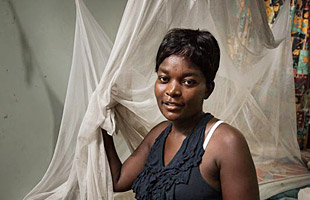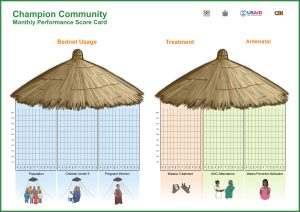Insight
The global fight against malaria has resulted in some dramatic successes. From 2000 to 2015, global deaths from malaria dropped by 60%. Still, despite being both preventable and curable, there are 214 million new cases of the disease every year, and it remains a major cause of death among children.1
Action
From the social marketing of bed nets to research into the factors affecting case management and malaria in pregnancy, our results-driven, integrated approach to malaria control has evolved over time.
Recent efforts include the development of comprehensive models of service delivery to address key access and availability issues, and working with the President’s Malaria Initiative to ensure that global and country-level strategies use behavior change programming to accelerate progress.

Change
Working in parts of Zambia with persistently high rates of malaria, TMG’s formative research indicated that most community members simply accepted the presence of the disease as a part of everyday life.
To change this wide-spread social perception and facilitate behaviors that would prevent or mitigate malaria, TMG introduced Champion Communities, an approach which tracked and visually correlated malaria incidence with key behaviors, including ITN use, timely care seeking, and appropriate management of malaria in pregnancy.
Participating communities saw up to 50% improvements in regular use of insecticide-treated mosquito nets, care seeking, testing, and treatment adherence, and a near 10% decrease in fever prevalence.

Champion Community Monthly Scorecard, used to track and report community progress toward malaria prevention and mitigation behaviors.